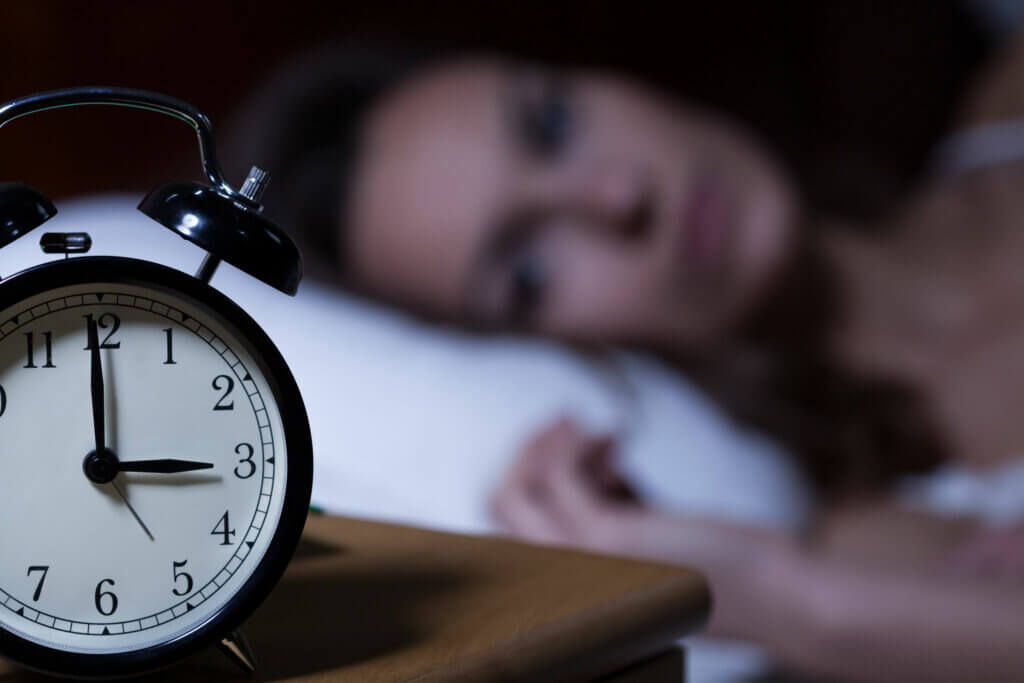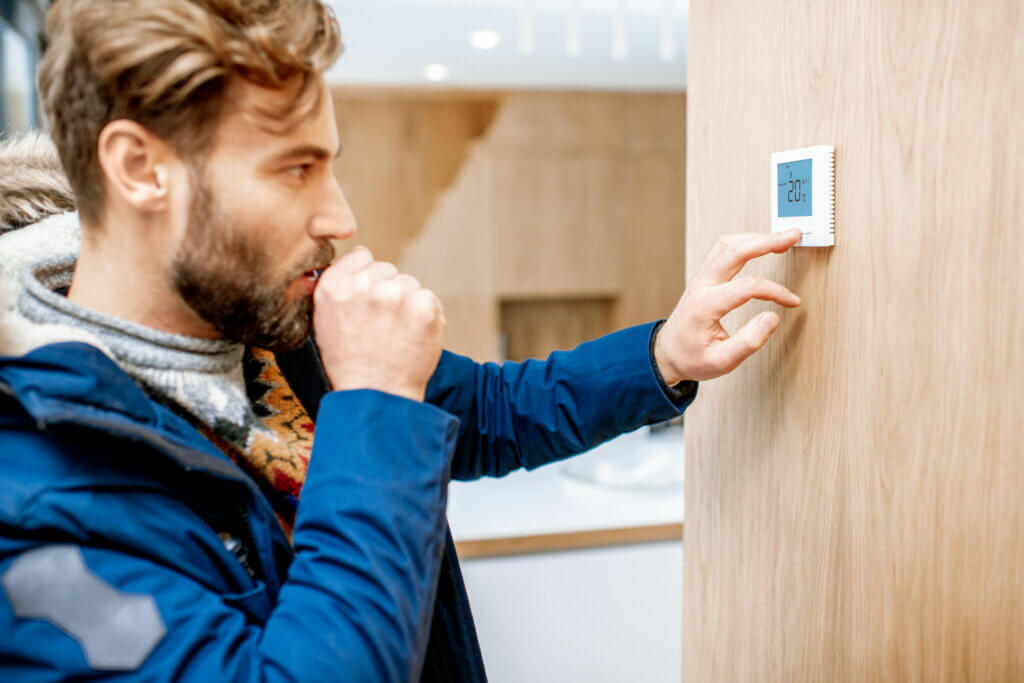How to Prevent Migraines

To prevent migraines, you need to be clear about two things: the first is that you can adapt these measures, and the second is that no measure will work on its own. Each action must be supported by others.
This means that it isn’t only the consumption of a painkiller or a cup of coffee or a meditation session that will prevent the migraine from occurring. The combination of these types of measures may work well, such as drinking plenty of water daily and getting enough rest.
Self-care and good lifestyle habits to prevent migraines
In both the prevention and treatment of migraines, lifestyle habits can greatly contribute to well-being. This is confirmed by various studies and specialized information portals, such as Medline Plus.
Get enough sleep
Migraine can appear when there are drastic changes in your sleep routine. So, sleeping too much or not getting enough sleep can trigger an episode.
For this reason, it’s recommended to maintain a good sleep routine as a prevention. This implies the following:
- Get enough sleep every day: at least 7 hours.
- Maintain an almost fixed schedule: get up and go to bed at the same time.

Take care of the diet
Just as there are several types of food and combinations that can trigger a migraine, there are others that do the opposite. According to the MSD Manual, this can vary from person to person, so each person must identify what works best for them and what doesn’t work for them.
Regarding caffeine, there are still many ambiguities. On the one hand, some people benefit from the consumption of coffee as a preventive measure, while others should avoid it.
In general, it has been observed that patients with a tendency to suffer migraines should avoid foods that contain the following:
- Tyramine: aged cheeses, soy products, beans, cold cuts, smoked or dried fish, and some types of nuts.
- Nitrates: cold cuts and ultra-processed ones.
- Monosodium glutamate: very common in fast food.
Drink plenty of water
On a day-to-day basis, good hydration can greatly contribute to overall well-being. Ideally, give priority to water and drinks that don’t contain caffeine, such as natural fruit juices and some natural infusions.
Reduce sensory stimuli
In view of the fact that light, noise and smells can trigger or worsen migraines, it’s advisable to reduce these types of stimuli. Especially at home.
In this sense, simple measures such as dimming the lights and maintaining good ventilation, can help prevent or mitigate a migraine episode. Many people go to rest in a quiet, dark, cool room whenever they begin to notice discomfort.
Avoiding the use of electronic devices is a highly recommended measure when you want to prevent migraines. Even when the brightness is lowered, these can be annoying and intensify the discomfort. Especially if you use them for long periods of time.
Manage stress
Stress is one of the most common migraine triggers. Although sometimes it isn’t difficult to manage it, sometimes it may be necessary to resort to some tools or techniques to achieve this. Some of the most recommended are relaxation exercises and biofeedback.
Avoiding stress completely isn’t a realistic measure. Therefore, what we propose is to learn to manage it through different techniques.
Yoga, deep breathing, mindfulness, and cognitive-behavioral therapy have been shown to be effective in preventing and alleviating migraine episodes and daily emotional stress.
Maintain a moderate caffeine intake
Although caffeine (found in coffee, chocolate, and tea) has been linked to the onset of migraines, it has also been found to be helpful in contributing to relief.
On this subject, the MSD Manual indicates that the foods that trigger migraines vary from person to person. For this reason, you can try drinking a little coffee and assess whether it benefits you or not.
It’s important to do this in moderation and avoid any excess. Drinking a lot of coffee or abstaining altogether could aggravate the situation.
Stay cool
All extremes are harmful. When it comes to preventing migraines, it’s even more necessary to avoid them.
In relation to clothing, both overdressing and not wrapping up can contribute to the onset of migraines. Dressing in layers is a recommended option because it allows you to easily regulate your body temperature at any time.

Medical prescriptions to prevent migraines
If you suffer from migraines with a certain frequency (3 to 5 episodes a month), your doctor may authorize you to use some over-the-counter medications (non-steroidal anti-inflammatory drugs or acetaminophen). Or they may prescribe drugs to help you.
The Food and Drug Administration (FDA) approved the first drug for the prevention or treatment of migraine headaches with or without aura in adults: Nurtec ODT ® (rimegepant).
As Dr. Julián Pascual indicates in the “Guide to recommendations for the diagnosis and treatment of migraine in clinical practice”, some people could include the following drugs that have been shown to be effective in preventing migraines:
- Beta-blockers: Propranolol, nadolol, atenolol, and metoprolol.
- Calcium antagonists: Flunarizine.
- Antidepressants: Amitriptyline, fluoxetine, and other serotonin reuptake inhibitors.
Depending on the case, some medications may be more useful than others. It isn’tt advisable to resort to self-medication, as this could trigger the migraine instead of preventing it.
On the other hand, your doctor may recommend keeping a migraine diary (either on your mobile, in a virtual notepad, or in a paper notebook). You can then keep a record of how you feel, when you noticed discomfort, and any possible triggers.
Thus, you won’t only be able to identify what can increase the risk, but also try to avoid it. Try to maintain a flexible and healthy approach so you don’t go to extremes.
To prevent migraines, you need to be clear about two things: the first is that you can adapt these measures, and the second is that no measure will work on its own. Each action must be supported by others.
This means that it isn’t only the consumption of a painkiller or a cup of coffee or a meditation session that will prevent the migraine from occurring. The combination of these types of measures may work well, such as drinking plenty of water daily and getting enough rest.
Self-care and good lifestyle habits to prevent migraines
In both the prevention and treatment of migraines, lifestyle habits can greatly contribute to well-being. This is confirmed by various studies and specialized information portals, such as Medline Plus.
Get enough sleep
Migraine can appear when there are drastic changes in your sleep routine. So, sleeping too much or not getting enough sleep can trigger an episode.
For this reason, it’s recommended to maintain a good sleep routine as a prevention. This implies the following:
- Get enough sleep every day: at least 7 hours.
- Maintain an almost fixed schedule: get up and go to bed at the same time.

Take care of the diet
Just as there are several types of food and combinations that can trigger a migraine, there are others that do the opposite. According to the MSD Manual, this can vary from person to person, so each person must identify what works best for them and what doesn’t work for them.
Regarding caffeine, there are still many ambiguities. On the one hand, some people benefit from the consumption of coffee as a preventive measure, while others should avoid it.
In general, it has been observed that patients with a tendency to suffer migraines should avoid foods that contain the following:
- Tyramine: aged cheeses, soy products, beans, cold cuts, smoked or dried fish, and some types of nuts.
- Nitrates: cold cuts and ultra-processed ones.
- Monosodium glutamate: very common in fast food.
Drink plenty of water
On a day-to-day basis, good hydration can greatly contribute to overall well-being. Ideally, give priority to water and drinks that don’t contain caffeine, such as natural fruit juices and some natural infusions.
Reduce sensory stimuli
In view of the fact that light, noise and smells can trigger or worsen migraines, it’s advisable to reduce these types of stimuli. Especially at home.
In this sense, simple measures such as dimming the lights and maintaining good ventilation, can help prevent or mitigate a migraine episode. Many people go to rest in a quiet, dark, cool room whenever they begin to notice discomfort.
Avoiding the use of electronic devices is a highly recommended measure when you want to prevent migraines. Even when the brightness is lowered, these can be annoying and intensify the discomfort. Especially if you use them for long periods of time.
Manage stress
Stress is one of the most common migraine triggers. Although sometimes it isn’t difficult to manage it, sometimes it may be necessary to resort to some tools or techniques to achieve this. Some of the most recommended are relaxation exercises and biofeedback.
Avoiding stress completely isn’t a realistic measure. Therefore, what we propose is to learn to manage it through different techniques.
Yoga, deep breathing, mindfulness, and cognitive-behavioral therapy have been shown to be effective in preventing and alleviating migraine episodes and daily emotional stress.
Maintain a moderate caffeine intake
Although caffeine (found in coffee, chocolate, and tea) has been linked to the onset of migraines, it has also been found to be helpful in contributing to relief.
On this subject, the MSD Manual indicates that the foods that trigger migraines vary from person to person. For this reason, you can try drinking a little coffee and assess whether it benefits you or not.
It’s important to do this in moderation and avoid any excess. Drinking a lot of coffee or abstaining altogether could aggravate the situation.
Stay cool
All extremes are harmful. When it comes to preventing migraines, it’s even more necessary to avoid them.
In relation to clothing, both overdressing and not wrapping up can contribute to the onset of migraines. Dressing in layers is a recommended option because it allows you to easily regulate your body temperature at any time.

Medical prescriptions to prevent migraines
If you suffer from migraines with a certain frequency (3 to 5 episodes a month), your doctor may authorize you to use some over-the-counter medications (non-steroidal anti-inflammatory drugs or acetaminophen). Or they may prescribe drugs to help you.
The Food and Drug Administration (FDA) approved the first drug for the prevention or treatment of migraine headaches with or without aura in adults: Nurtec ODT ® (rimegepant).
As Dr. Julián Pascual indicates in the “Guide to recommendations for the diagnosis and treatment of migraine in clinical practice”, some people could include the following drugs that have been shown to be effective in preventing migraines:
- Beta-blockers: Propranolol, nadolol, atenolol, and metoprolol.
- Calcium antagonists: Flunarizine.
- Antidepressants: Amitriptyline, fluoxetine, and other serotonin reuptake inhibitors.
Depending on the case, some medications may be more useful than others. It isn’tt advisable to resort to self-medication, as this could trigger the migraine instead of preventing it.
On the other hand, your doctor may recommend keeping a migraine diary (either on your mobile, in a virtual notepad, or in a paper notebook). You can then keep a record of how you feel, when you noticed discomfort, and any possible triggers.
Thus, you won’t only be able to identify what can increase the risk, but also try to avoid it. Try to maintain a flexible and healthy approach so you don’t go to extremes.
- Bartleson J, Cutrer FM. Migraine update. Diagnosis and treatment [Internet]. Clinical & Health Affairs. 2010 [cited 2021 Jun 26]. p. 36–41. Available from: https://www.researchgate.net/publication/44696902_Migraine_update_Diagnosis_and_treatment
- Drug Trials Snapshots: NURTEC ODT | FDA [Internet]. [cited 2021 Jun 26]. Available from: https://www.fda.gov/drugs/development-approval-process-drugs/drug-trials-snapshots-nurtec-odt
- Migraña | Oficina para la Salud de la Mujer [Internet]. [cited 2021 Jun 26]. Available from: https://espanol.womenshealth.gov/a-z-topics/migraine
- Pascual J. Guía de recomendaciones para el diagnóstico y tratamiento de la migraña en la práctica clínica [Internet]. [cited 2021 Jun 26]. Available from: https://www.semg.es/doc/documentos_SEMG/consenso_migrana.pdf
- Silberstein SD. Migraña – Trastornos neurológicos [Internet]. Manual MSD versión para profesionales. [cited 2021 Jun 26]. Available from: https://www.msdmanuals.com/es/professional/trastornos-neurológicos/cefalea/migraña
Este texto se ofrece únicamente con propósitos informativos y no reemplaza la consulta con un profesional. Ante dudas, consulta a tu especialista.







